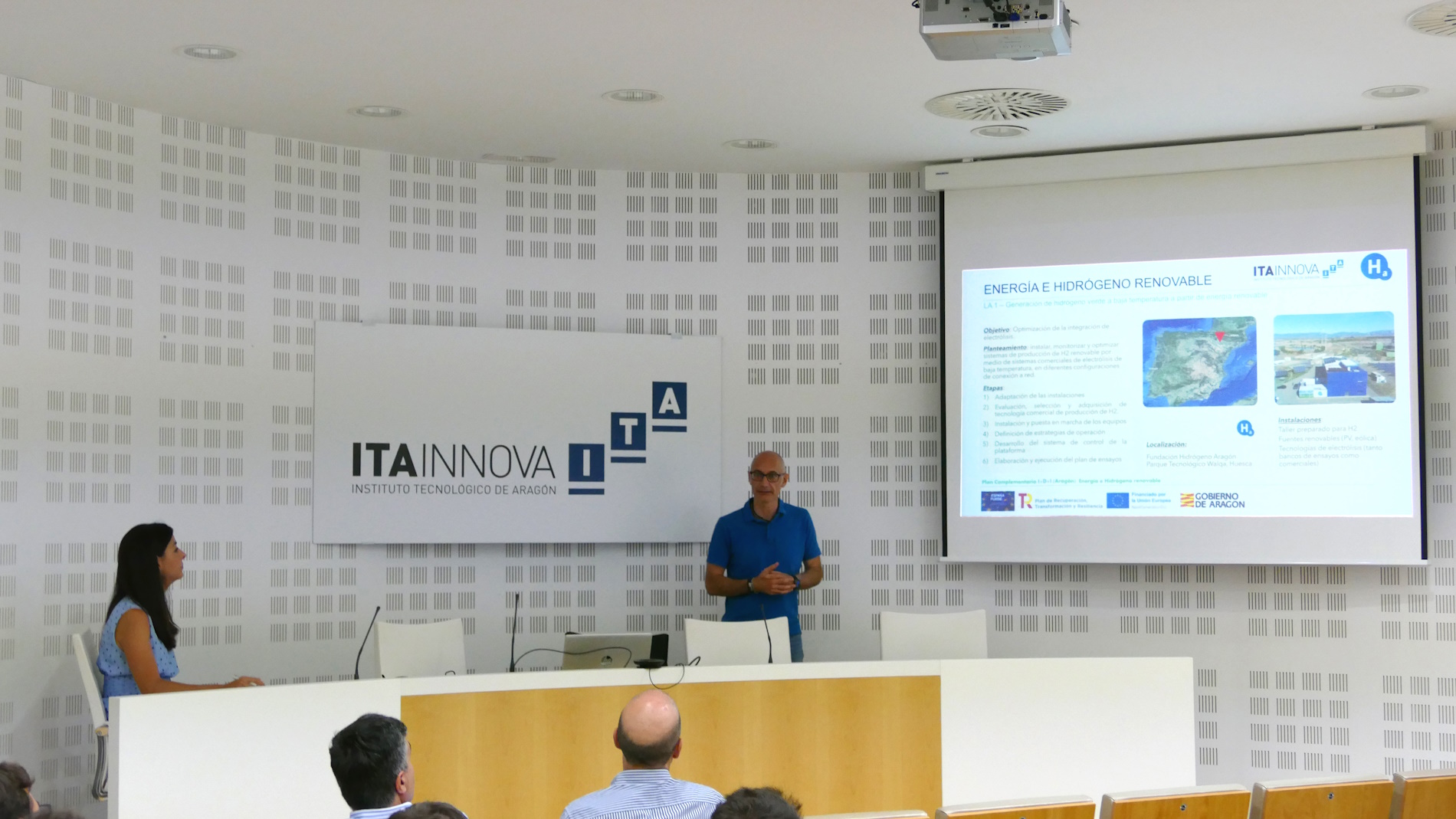The partners of the Complementary Renewable Energy and Hydrogen Plan (PC-H2) of Aragon announce the progress made
The partners of the Complementary Renewable Energy and Hydrogen Plan (PC-H2) of Aragon announce the progress made.
On 4th July, the headquarters of the Aragon Technology Institute ITAINNOVA hosted the technical monitoring meeting of the Complementary Renewable Energy and Hydrogen Plan (PC-H2) project corresponding to the 18th month of project execution, from January 2022 to June 2023. The technical teams of the project executing entities participated: University of Zaragoza, Technological Institute of Aragon and the Foundation.
During the conference, the three partners presented the technical advances in the different Lines of Action in which they are participating, covering the value chain: hydrogen generation, storage and supply and final use of hydrogen in heavy transport.
Aragon Hydrogen Foundation
On our part, it is worth mentioning the Walqa hydrogen plant upgrading project, which is being conditioned so that it can supply hydrogen at pressures of up to 700 bar to light vehicles. The installation is expected to be available at our facilities in the spring of 2024. Likewise, activities aimed at optimising plants dedicated to hydrogen production are progressing satisfactorily with the recent acquisition and start-up of an alkaline electrolyser.
Aragon Institute of Technology
ITAINNOVA presented the progress made in the tendering processes required for the start-up of its two pilot facilities: the Zero Emissions laboratory for optimising the management of hybrid networks with a high penetration of renewables and various energy storage systems for managing surpluses and balancing supply and demand; and the fuel cell electric tractor unit (FCEV), which is expected to provide a laboratory for demonstrating the viability of this technology, as well as for testing new components for this type of transport. In the coming months, progress will begin to be seen in both facilities.
José Ángel Peña’s team will work on the optimisation of reactors and catalysts for the production of synthetic natural gas from biogas and electrolytic hydrogen. The activities led by Emilio Larrodé are integrated in the project for the start-up of the fuel cell power plant (FCEV), where they will be responsible for monitoring the demonstration and feasibility analysis of the technology. Javier Ballester’s approach aims to generate knowledge, experimentally, on the flame of mixtures of hydrogen and methane in different proportions. Norberto Fueyo and his team will study numerically the phenomena of ignition and propagation of deflagrations of hydrogen-air mixtures. The activities led by Antonio Valero will focus on the optimisation of the configuration of renewable ammonia production plants.
This action is co-financed under the Complementary Hydrogen Plan Agreement: 65% by the Recovery and Resilience Mechanism, framed within the “RECOVERY, TRANSFORMATION AND RESILIENCE PLAN – FINANCED BY THE EUROPEAN UNION – NEXTGENERATIONEU” and the rest is co-financed by funds from the Autonomous Community of Aragon The expenses assigned to the MRR projects are financed at a rate of 100%.



